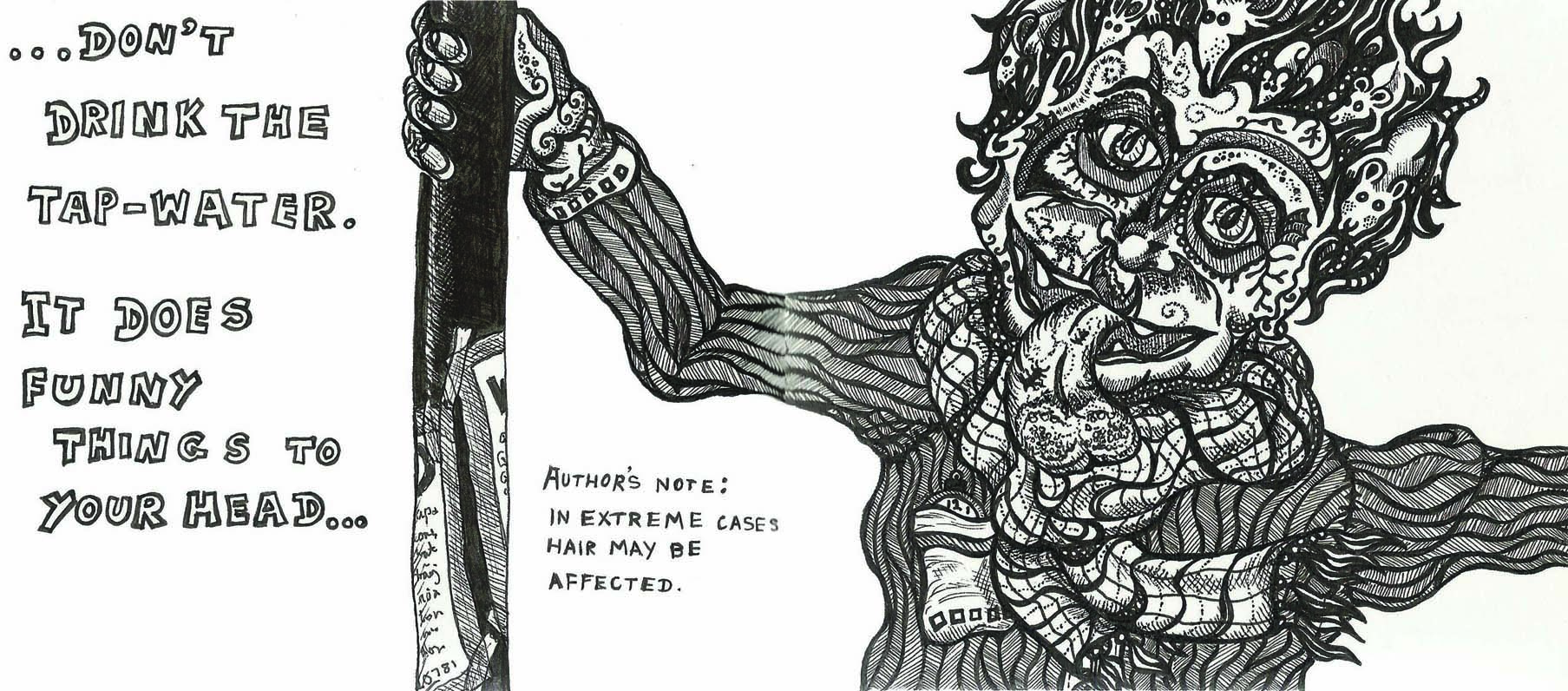
So I have been thinking for a while on starting a webcomic. I’ve been reading XKCD and Oglaf for some time – they’re part of everyday life for me, my partner, my peers, that person on Facebook who you can’t remember meeting but insists on ‘sharing’ nevertheless. I’m even wondering if I could base an entire academic paper in the field (there are some good ones out there).
For years, I’ve had artwork and design that I’ve kept hidden. Not for any other reason than that I’m actually afraid it might be so good (!) that somebody might steal it and use it on their website or pass it off as their own. I’ve got news for me: it isn’t. There are thousands, if not millions of amazing artists on the web, each offering is a drop in the ocean – so is it actually a GOOD thing to have someone reproduce your work on their page, or their social media?
Yes. No. And Yes-No. And maybe. It all depends.
Copyright of images on the web is a grey area. Blog posters might remember this extremely useful post from last year. Lots of us think it is ok to just take photos from Flickr or even a simple google search for personal, blogging, use as long as there is a disclaimer. Apparently not. Even using Pinterest is a breach of copyright law if you upload something because you say it is ok to upload. The advice here is to create your own images (they don’t have to be works of art) or select images that are available under a creative commons licence. That way you aren’t messing with anybody’s intellectual property. The Digital Millennium Copyright Act outlines all you need to know, allegedly.
Intellectual property in the digital age is also as confusing as finding your way in London without a map or smartphone. Lucky for us Professor Chris May was on hand to tell us a bit about it, and how it relates to digital economy. We have the opportunity of open, networked innovation but the challenge of retaining some of the rewards for our hard work. This also relates to the problem of plagiarism (Wikipedia essay, anyone?).
Let’s say I draw a picture of a cathoover and post it online. Except when I draw this cathoover I am actually at work for a large illustration agency, and when I signed my contract I agreed to assign over all intellectual property of work created on site during work hours to said company. Then someone sees and likes the cathoover idea so much they commission me to do a series of cathoover story books, on a freelance basis, and ask to buy the copyright. Oh yeah! But no. The illustration agency’s lawyers say that it belongs to them as it is Foreground IP, and I can’t have it back. Thus ensues legal battle (NB this is probably not entirely factually correct in terms of legalese, but you get the idea).
Recently I drew a series of illustrations for some popular revision guides, and then later this fab book cover for children’s author Geraldine McCaughrean (on behalf of New Windmills). They are not mine, I might only show them to you in a portfolio as coming from me, but I can’t use them again, or reproduce them without permission. But I can share my pictures of wine, and cathoovers, as much as I like because I own the Background IP.
So back to webcomics. Most webcomics rely on people like us finding them, reading them, enjoying them and buying the merchandise. If you share an XKCD it will show up in a Twitter or Facebook news feed with the authors signature and assertation on the bottom of the image. Randall Munro doesn’t try to stop you sharing, he just wants you to know he made it. For struggling webcomic start-ups word-of-mouth (picture-of-social-media?) is one of the only ways to get a following. So it doesn’t make sense to try and inhibit this.
Another thing about webcomics is that they aren’t all about the money making model either, it’s about creativity and innovation at its core. The only time that you’ll likely hear a webcomic artist complaining is when a commercial company uses content as their own without paying royalties or fees. The man on the street on his smartphone isn’t trying to make a quick buck, the commercial company is. Erika Moen did a fab but rather risqué comic which was used with permission (and paid for) by one popular site, but without permission or payment by another. She found out, and rightly sent them an invoice. There’s also a handy ‘donate’ button on her page – if you like what you see – dig deep.
Rohac Junior wrote a paper about webcomics and copyright in the US. He sees webcomics as operating under two different types of market: The Three Party Market (content, services, software, etc. are free to everyone) and the Nonmonetary Market (anything is free to anyone with no expectation of payment). In a survey of webcomic artists he found that most were happy to permit the sharing of their work if they were credited as the source (64%) and (10%) didn’t mind either way. That left 26% wanting to retain control of their work and not permit sharing, but there was a mismatch between rights management and how they choose to display their work. Then you have some webcomics that offer merchandise for money, but the comics for free… It gets messy.
Most webcomic artists probably don’t have the time or money to hunt down and sue people using their work (drawing pictures takes time), but should they want to – the option is there, isn’t it?